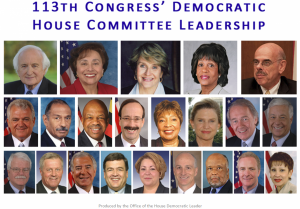While it may be counting chickens before they’re hatched, this election seems to be slipping from the tiny fingers of Donald J. Trump. America, you did it! It was the bare minimum required of a democracy hopeful of its continuance, but you did it.
The GOP has already begun its quadrennial public mortification and, in true Republican form, they don’t have a clue. George Will figures this will be accomplished in a single sentence, “Perhaps it is imprudent to nominate a venomous charlatan.” This has been expressed more concisely elsewhere. You can find half a dozen fresh columns by conservative pundits each week insisting that The Donald has damaged the brand and, crucially, that he was never a real Republican any way and could we please just move on from this whole ugly episode. I see that point. I really do. The Republicans I know have no use for the misogyny, religious persecution, racism or protectionism of the Trump campaign. Their shtick is small government, local solutions, free markets, etc., etc.. They opposed Trump every step of the way and are a fine example of putting principle above Party. Bravo, #NeverTrumpers!
The point of this post is not to rub salt in their wounds. The traditional fiscal conservatives are entitled to their wrong opinions on taxing and spending. They don’t have to take credit for Trump any more than I have to take credit for everything said by the anti-natalists at NARAL. But, in my opinion, Republicans have put far too little thought into how they got here. Is it merely a coincidence that the free market advocates and the racists ended up in the same party? It is, after all, a genuinely impressive trick to win the votes of lower-class whites while advancing a host of policies that would take money from their pockets. Are Republicans just that good?
The key to understanding the big, peculiar circus that is the GOP is the concept that inspires the most eye-rolling from them. The connection between the “where’s the fence!” wing and the “taxation is theft!” wing of the GOP is … privilege. More accurately, it’s the willful or accidental ignorance of inherited privilege in the United States circa 2016. In order for the GOP to exorcise these demons, they’re going to have to first understand, then acknowledge the existence of, privilege and their relationship to it.
What privilege is not
We almost need a new word for this phenomenon. Modern conservatives have so shut themselves off from understanding the concept of privilege that they can’t speak of it sans sarcasm.
“Sorry guys. Gotta go. My white privilege job needs my attention.”
“With all this male privilege I’m enjoying, people just throw money at me.”
(It’s long been established that conservatives are abysmally losing the contest for comedic superiority. Low expectations are key here.)
I wish it didn’t have to happen, but let me say what’s been said thousands of times before: White privilege does not mean you didn’t work for the things you have. The rewards, financial and other, that you receive, are undeniably correlated with the effort you put in. Congratulations!
What we mean when we say that you enjoy “privilege” is that this correlation between effort/character and wealth is not perfect. And, some of the additional variation can be accounted for by your race/gender/religion/parentage/etc.. That’s it. You work hard. But some people who work just as hard as you receives less because they have different parents. Is that so hard to imagine?
We’ve explained this in a hundred different ways. The playing field is not level. Some people are born on 3rd base. There are comics. And object lessons. And a personal address to a lost Yalie. The resources are out there.
White privilege also does not mean that no woman or Black person has ever succeeded. That’s not how a statistical correlation works. At the upper end of the bell curve for all races/genders, we’ll find highly talented, motivated and lucky people who succeed. But that does not mean that one population does not enjoy an unearned advantage. Obama and Oprah do not mean racial privilege is over.
Why privilege is the glue
Privilege is the glue that holds together the Brooks Brothers wing and the patriotic jumpsuit wing of the GOP. The fiscal laissez-faire conservatives want to shrink government since it takes money from deserving makers and redistributes it to unworthy takers. But this only works if you think possessing wealth is highly correlated with deserving wealth. As you become aware of the myriad ways society and its institutions give incremental advantages to (for example) white men born into wealth and put obstacles in the path of lower-class Latinas, this argument becomes a lot less compelling. The weaker you believe that correlation between wealth and character to be, the less you’re concerned about taxing rich people to pay for programs for poor people. Wealthy Republicans believe this correlation is strong and taxes are, therefore, immoral.
The Trump wing of the party has a different privilege problem. They have a hard time coming to grips with their historically-conferred advantages. As astutely observed by Michael Kimmel, Trump is drawing support from the aggrieved entitlement of non-college educated white men and women. These are men and women who pine for the world of their parents and grandparents when a job in the factory got you a house, health care and a retirement. But this set up was always made possible by the presence and effort of both a domestic and an international underclass. Discrimination in employment, housing and education has bolstered the incomes and suppressed the rents of white people for decades. As that discrimination is eliminated, white people find it hard to build the life their parents had with only their high school diploma.
Even leaving aside state-side discrimination, the lives of Americans have been subsidized by the accident of their birth in the United States. The expansions of free trade has reduced that subsidy as well, to the benefit of the international lower class. But even if the knocking down of trade barriers benefits both rich and poor countries on the whole, there are individual victims within those countries. These disenfranchised Trump supporters see this as giving away the jobs to which they are entitled.
It’s not incorrect for this group to recognize themselves as victims of globalization. What’s incorrect is thinking the system has suddenly become unfair because you have to compete with Mexicans on a level field. The system has suddenly become fair and the real problem, that a modern economy does not support low skilled workers at American wages, was previously masked by tariffs. In effect, the US government has been picking winners and losers for decades now. Once it stopped, non-college workers discovered that the market made them the losers in this game.
Unfortunately, the GOP is the wrong place for economic losers. In the Republican Party, those who can’t support themselves have deficient character. So the GOP has to hide from it’s non-college voters the fact that they’re victims of the market. They’ve paraded various scapegoats during the Obama Presidency, but Trump’s genius was to latch on to a scapegoat with a long tradition in Republican states–the brown people.
The college-educated Republican elite are perfectly willing to paint this Republican underclass as victims of a system propping up minorities at their expense. They don’t believe in privilege either and, without white racial resentment, their political future is bleak. But the gig is up. I know right now we liberals are supposed to be sheepishly apologizing and examining our own unfortunate prejudices. But when I contemplate this country long term I believe privilege denialism is near its end. Every day, the racist and misogynist machinations of the system are more apparent. And when that glue that holds this twisted Republican coalition together dissolves, a new day dawns.





